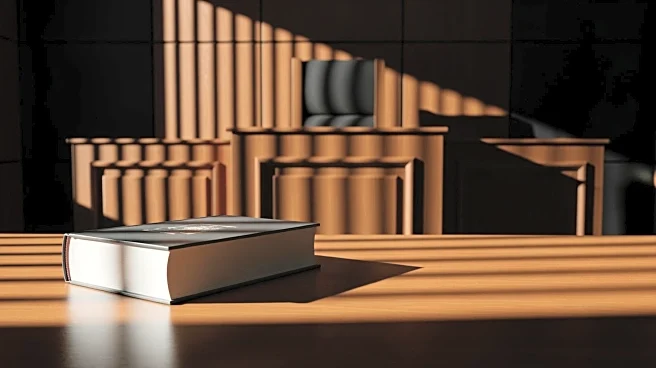What's Happening?
South Korean President Lee Jae-myung has proposed criminalizing disinformation, sparking debate over free speech implications. He argues that acts distorting facts or violating human dignity should be
punishable. This proposal has raised concerns about government overreach in defining disinformation, potentially leading to the suppression of free expression. Historical attempts by South Korean governments to crack down on free speech have been noted, with previous presidents pursuing legal cases against opponents over speech disputes. The proposal is part of a broader trend where governments attempt to regulate speech under the guise of combating misinformation.
Why It's Important?
The proposal by President Lee highlights the delicate balance between combating misinformation and preserving free speech. If implemented, it could set a precedent for other democratic societies, potentially leading to increased government control over speech. This raises concerns about the potential for abuse, where governments might use such laws to silence dissent or unpopular opinions. The implications for U.S. policy are significant, as similar debates over misinformation and free speech are ongoing. The proposal serves as a cautionary tale for free societies, emphasizing the need for rigorous debate and transparency in addressing misinformation.
What's Next?
If South Korea proceeds with criminalizing disinformation, it could lead to legal challenges and public protests. The international community may scrutinize the move, impacting South Korea's diplomatic relations. In the U.S., similar discussions about regulating misinformation could gain momentum, influencing legislative proposals and public discourse. Stakeholders, including civil rights groups and free speech advocates, are likely to engage in debates, pushing for safeguards to prevent government overreach.
Beyond the Headlines
The proposal raises ethical questions about the role of government in regulating speech and the potential consequences for democratic values. It underscores the importance of defining misinformation clearly to avoid arbitrary enforcement. Long-term, this could influence global norms on free speech and government regulation, affecting cultural and legal landscapes.










